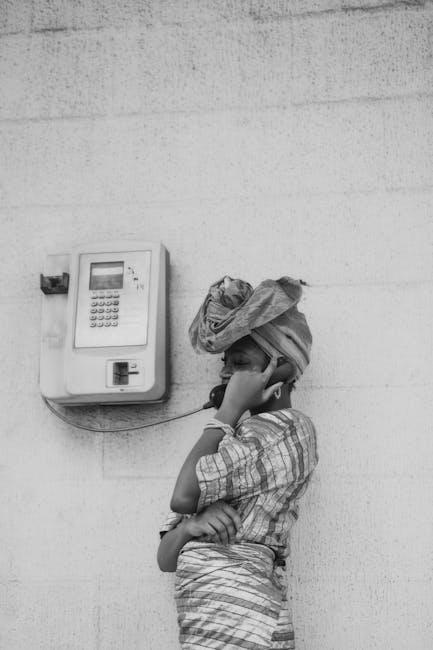As travelers set out to explore the vibrant and diverse landscapes of Africa, they often find themselves immersed in a tapestry of cultures, each with its own unique customs and traditions. From the bustling markets of Marrakech to the serene savannas of the Serengeti, Africa offers an array of experiences that promise to enrich the soul and broaden the mind. Yet, as with any journey into unfamiliar territories, the question of cultural sensitivity looms large. One of the most visible manifestations of respect—or lack thereof—can be found in the way travelers choose to dress. But what does it mean to dress appropriately in a continent so varied and vast? Should travelers be mindful of their attire, or does this concern veer into the realm of cultural over-cautiousness? This article delves into the nuances of culturally appropriate dress in Africa, exploring the fine line between respect and restriction, and offering insights into how travelers can navigate this aspect of their adventures with grace and awareness.
Understanding Cultural Sensitivities in African Attire
Traveling through Africa offers an enriching tapestry of diverse cultures, each with its own distinct traditional attire. Understanding the significance behind these garments is crucial for any traveler aiming to show respect and appreciation for local customs. African attire often carries profound cultural meanings, representing not just fashion, but history, identity, and social values. Misappropriating or misinterpreting these outfits can inadvertently lead to misunderstandings or even offense.
- Symbolism: Many African garments have symbolic meanings. For example, certain colors or patterns may signify social status, marital status, or are reserved for specific ceremonies.
- Material and Craftsmanship: The choice of fabric and the method of crafting can also be significant. Some materials are handwoven or dyed using traditional methods that hold cultural importance.
- Appropriate Occasions: Just as with any culture, there are specific times and places where wearing traditional attire is appropriate or inappropriate.
To navigate these nuances, it’s advisable to engage with locals and seek guidance on the cultural norms associated with attire. This not only helps in avoiding cultural faux pas but also fosters a deeper connection with the communities you visit.

Navigating Traditional Dress Codes Across African Regions
When exploring the vibrant tapestry of African cultures, understanding and respecting traditional dress codes is essential for any traveler. Across the continent, attire often carries deep cultural significance, varying from the intricate Kente cloth of West Africa to the elegantly draped Boubou in Senegal. Travelers should be mindful of these nuances, as wearing culturally inappropriate clothing can sometimes be seen as disrespectful or, at the very least, culturally insensitive.
- West Africa: Embrace colorful patterns but be cautious about ceremonial attire that might be reserved for specific occasions.
- East Africa: In regions like Kenya and Tanzania, modesty is key, especially in rural areas.
- Southern Africa: Traditional dress can range from modern adaptations to historic garments like the Shweshwe fabric in South Africa.
- North Africa: Influenced by Arab culture, long, loose-fitting garments are often the norm.
By engaging with local communities and seeking guidance from cultural insiders, travelers can enjoy a more immersive experience. Adopting appropriate dress not only shows respect but can also lead to enriching interactions and deeper connections with the people and places visited.

Tips for Respectful Dressing While Traveling in Africa
When traveling across Africa, dressing respectfully can enhance your experience and foster positive interactions with locals. While styles and customs vary widely across the continent, there are some general guidelines that can help you navigate cultural nuances effectively. Here are a few tips to consider:
- Research Local Customs: Before you pack, take time to learn about the cultural norms of your destination. In some regions, modesty is highly valued, and wearing clothes that cover shoulders and knees is appreciated.
- Embrace Local Fashion: Consider incorporating traditional garments or fabrics into your wardrobe. Not only does this show respect for local customs, but it also supports local artisans.
- Avoid Offensive Symbols: Be mindful of clothing with symbols or language that may be misinterpreted or considered disrespectful. When in doubt, opt for plain or neutral designs.
By being mindful of these tips, travelers can ensure that their attire is both respectful and practical, helping to bridge cultural gaps and create meaningful connections.

Balancing Personal Style with Cultural Respect on Your African Journey
Embarking on an African journey invites the opportunity to explore vibrant cultures, but it also necessitates a balance between expressing personal style and showing cultural respect. Understanding the local customs and traditions is paramount when it comes to dressing appropriately. While certain attire may be acceptable in one region, it might be considered disrespectful in another. To navigate these nuances, travelers can focus on a few key considerations:
- Research local customs: Before you pack, invest time in understanding the cultural dress norms of your destination.
- Opt for versatile clothing: Choose attire that can be easily adapted to different cultural settings.
- Respect religious sites: Always wear modest clothing when visiting religious or sacred locations.
- Support local artisans: Incorporate locally-made garments or accessories into your wardrobe to show appreciation for the culture.
By thoughtfully blending your personal style with cultural sensitivity, you can enrich your travel experience and forge meaningful connections with the communities you visit.
Future Outlook
As we draw the curtains on our exploration of culturally appropriate dress in Africa, it becomes clear that the question extends beyond mere fabric and fashion. It invites travelers to engage in a deeper dialogue of respect, understanding, and cultural sensitivity. Whether navigating the bustling streets of Marrakech or the serene landscapes of the Serengeti, each choice of attire can be a thread in the tapestry of global respect. By embracing local customs and traditions, travelers not only enhance their own journey but also contribute to a world woven with mutual appreciation and dignity. it’s not just about the clothes we wear, but the respect we share. Safe travels and thoughtful journeys await.

































